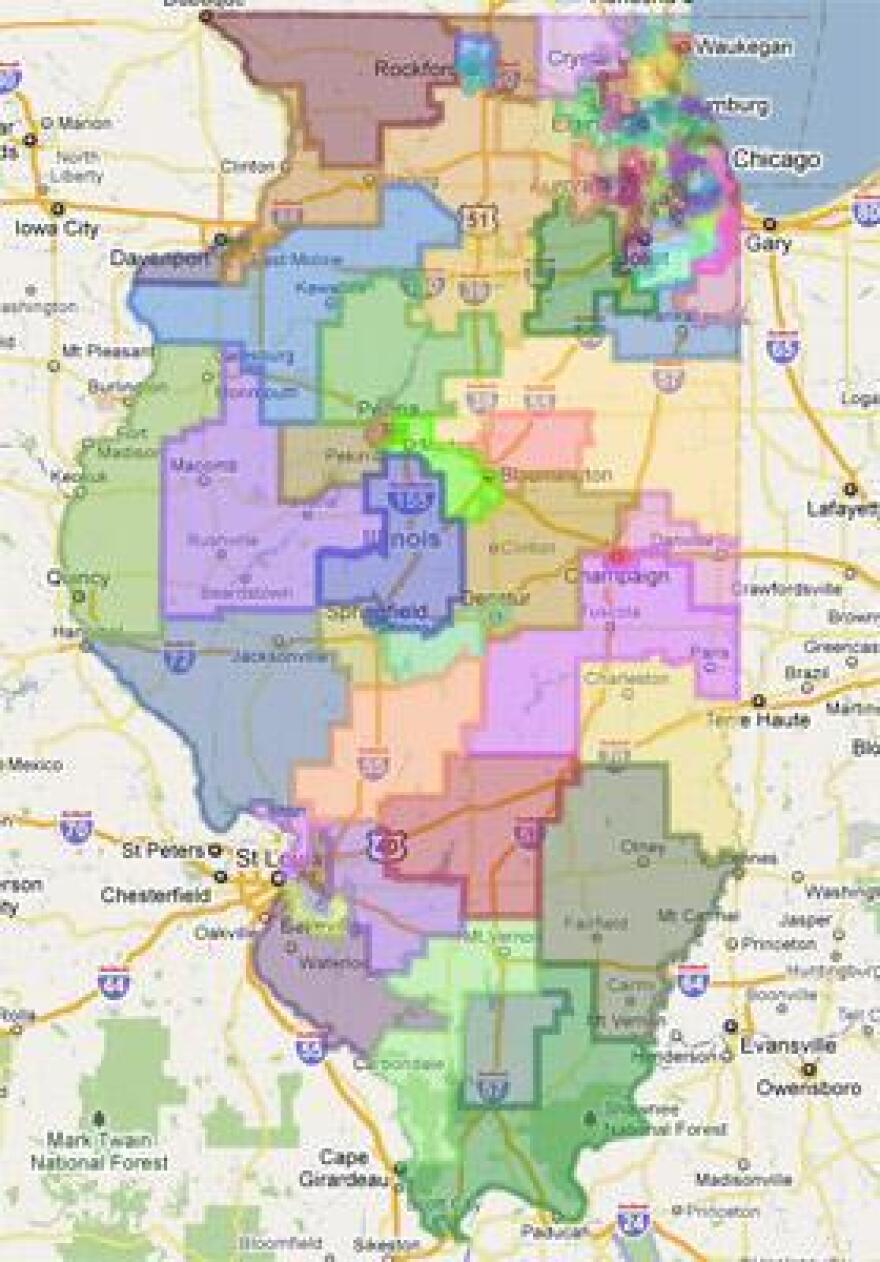A bipartisan group of lawmakers has introduced an amendment to the Illinois Constitution meant to transform the way legislative district boundaries are created here.
The idea is to have an independent commission draw legislative districts for the General Assembly and Congress.
The task is supposed to happen every 10 years after the census, and in Illinois has been handled by whatever party controls state government — presently Democrats.
The commission would be picked by the chief justice of the Illinois Supreme Court and the next most senior justice elected from a different party. (Today that’s Chief Justice Anne Burke, who was elected as a Democrat, and Justice Robert Thomas, who was elected as a Republican. Thomas has announced his retirement for the end of this month; Justice Rita Garman will then be the longest-tenured Republican on the court).
The amendment specifies a 17-member commission, with one member from each Congressional district (Illinois currently has 18 districts but is widely expected to lose on after this year’s census). Membership would be seven members of the two parties that won the most votes in the previous gubernatorial election — Democrats and Republicans — plus three people who do not associate with any party.
There would be all kinds of restrictions: members couldn’t be elected officials, campaign staffers, lobbyists, people with state contracts, or anyone related to any of those people.
“I think the point is that you do want to have people with a depth and breadth of experience in so many areas that really can help,” said state Rep. Terra Costa Howard, a Democrat from Glen Ellyn.
She’s chief sponsor of the amendment, but said the restrictions might have to be looseded in order to get the best people for the task. She said the language introduced Thursday is just a starting point for negotiations.
Also supporting the amendment is state Rep. Kelly Cassidy, a Democrat from Chicago. She said she and other supporters are committed to being more accountable to voters — not the other way around.
“This is not a place for ’to the victor go the spoils.’ The party that wins shouldn’t then be able to keep pushing that envelope,” Cassidy said.
Legislative Reaction Mixed
The Republican legislative leaders — Sen. Bill Brady and Rep. Jim Durkin — quickly endorsed the proposal. The concept of changing redistricting has been a major Republican priority this year.
Reaction was more muted among the Democrats who lead the General Assembly.
A spokesman for House Speaker Michael Madigan said the proposal is “under review.” Senate President Don Harmon’s spokesman echoed those comments, but added that Harmon “has a history of working for redistricting reform.”
Asked if Gov. J.B. Pritzker had a position on the constitutional amendment, spokeswoman Jordan Abudayyeh replied with a web link to video of a news conference from two weeks ago in which Pritzker was asked about redistricting in general, not the specific constitutional amendment.
“I am going to veto any unfair map that gets to presented to me, and I believe we’ll be able to take care of it that way,” Pritzker said at the time.
The administration did not respond to a series of follow-up questions, including whether his statement that “we’ll be able to take care of it that way” is meant to indicate he does not support the amendment, what his criteria are for an “unfair map,” and whether the current legislative map is fair or unfair.
The measure would have to be approved by supermajorities in the Illinois House and Senate by May 3, which would then put it on the ballot for voter approval or disapproval at this year’s general election in November.
The proposals are House Joint Resolution Constitutional Amendment 41 and Senate Joint Resolution Constitutional Amendment 18.






